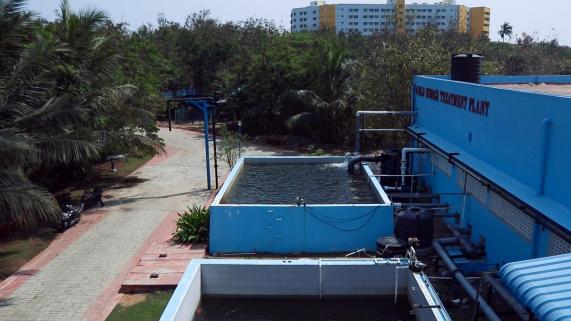
IIT-Madras to go for independent audit of its campus
- 29th Jun 2022
-
The Hindu
Institute is aiming at Indian Green Building Council certification.
The Indian Institute of Technology-Madras would be going in for a green audit of its campus next month. The audit will be done by a third party and a tender has been called already.
Ligy Philip, Dean, Planning, said the audit would be an independent assessment of their performance towards achieving a green campus. "We are going for Indian Green Building Council certification. Energy audit is part of the green audit," she said.
The campus is home to around 15,000 individuals of which 11,500 are students. Another 3,000 persons visit daily. Next year the institute will add another 2,500 students pushing the human population to around 18,000 to 20,000.
Since 2017 the institute has been working to reduce its dependence on the city's water supply system. It has become a zero discharge campus by recycling its water. In the past five years, the institute has re-laid pipelines so that all toilets across its hostels, academic and residential buildings, use only treated water.
Currently the institute consumes around 3.2 million litres a day of which as much as 1.5 mld is drawn from Metrowater. Professor Ligy, a civil engineer, said recycling water saved the institution a‚¹1.3 lakh a day on water bill. It is also generating revenue as the neighbouring research park buys 2 lakh lt/day.
The institute has built a sewage treatment plant with a capacity to treat 4 mld. Treated water is used for gardens, lawns and the AC chiller plant.
IIT is currently installing a centralised AC system that would save a‚¹40,000 on electricity bills. "Each tonne of AC needs 8lt/hr water. We have planned a centralised system of 3,200 tonnes. We are going to use treated sewage water for this," she said.
Unused water would be sent to infiltration well and the lake which has been deepened to 20ft. It can store 270 m lt. With rainwater also draining into the lake the treatment plant would allow them to draw eight lakh litres a day.
From next year all buildings on the campus, including classrooms, laboratories, student rooms will be air-conditioned. The campus is meeting 12-15% of its energy requirement from the 3.2 megawatt solar power facility it has established. In its satellite campus in Thaiyur a solar plant to generate 6 megawatt is coming up, which would also supply energy to the main campus through the grid, Prof. Ligy explained.

